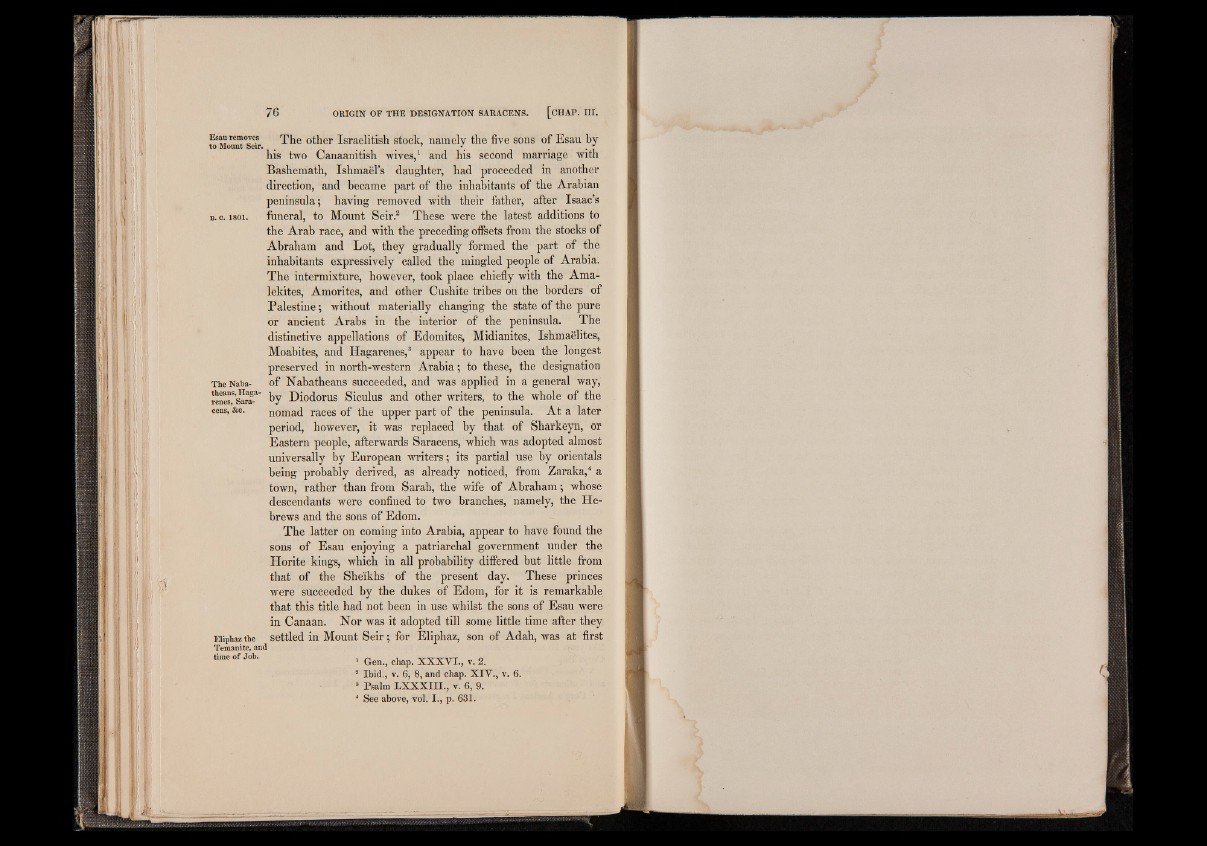
76 ORIGIN OF THE DESIGNATION SARACENS. [CHAP. II I.
Esan removes rpjle other Israelitish stock, namely the five sons of Esau by
to Mount Seir. . . . . . • • i his two Canaanitish wives,1 and his second marriage with
Bashemath, Ishmael’s daughter, had proceeded in another
direction, and became part of the inhabitants of the Arabian
peninsula; having removed with their father, after Isaac’s
b. c. ism. funeral, to Mount Seir.2 These were the latest additions to
the Arab race, and with the preceding offsets from the stocks of
Abraham and Lot, they gradually formed the part of the
inhabitants expressively called the mingled people of Arabia.
The intermixture, however, took place chiefly with the Ama-
lekites, Amorites, and other Cushite tribes on the borders of
Palestine; without materially changing the state of the pure
or ancient Arabs in the interior of the peninsula. The
distinctive appellations of Edomites, Midianites, Ishmaelites,
Moabites, and Hagarenes,3 appear to have been the longest
preserved in north-western Arabia; to these, the designation
TheNaba- of Nabatheans succeeded, and was applied in a general way,
rene”,S’£ra-a" by Diodorus Siculus and other writers, to the whole of the
cens, See. nomad races of the upper part of the peninsula. At a later
period, however, it was replaced by that of Sharkeyn, or
Eastern people, afterwards Saracens, which was adopted almost
universally by European writers; its partial use by orientals
being probably derived, as already noticed, from Zaraka,4 a
town, rather than from Sarah, the wife of Abraham; whose
descendants were confined to two branches, namely, the Hebrews
and the sons of Edom.
The latter on coming into Arabia, appear to have found the
sons of Esau enjoying a patriarchal government under the
Horite kings, which in all probability differed but little from
that of the Sheikhs of the present day. These princes
were succeeded by the dukes of Edom, for it is remarkable
that this title had not been in use whilst the sons of Esau were
in Canaan. Nor was it adopted till some little time after they
Eiiphazthe settled in Mount Seir; for Eliphaz, son of Adah, was at first
Temanite, and
time of Job. , Ger) ) chap_ X X X V I., v. 2.
2 Ibid., v. 6, 8, and chap. X IV ., v. 6.
3 Psalm L X X X I I I ., v. 6, 9.
4 See above, vol. I ., p. 631.